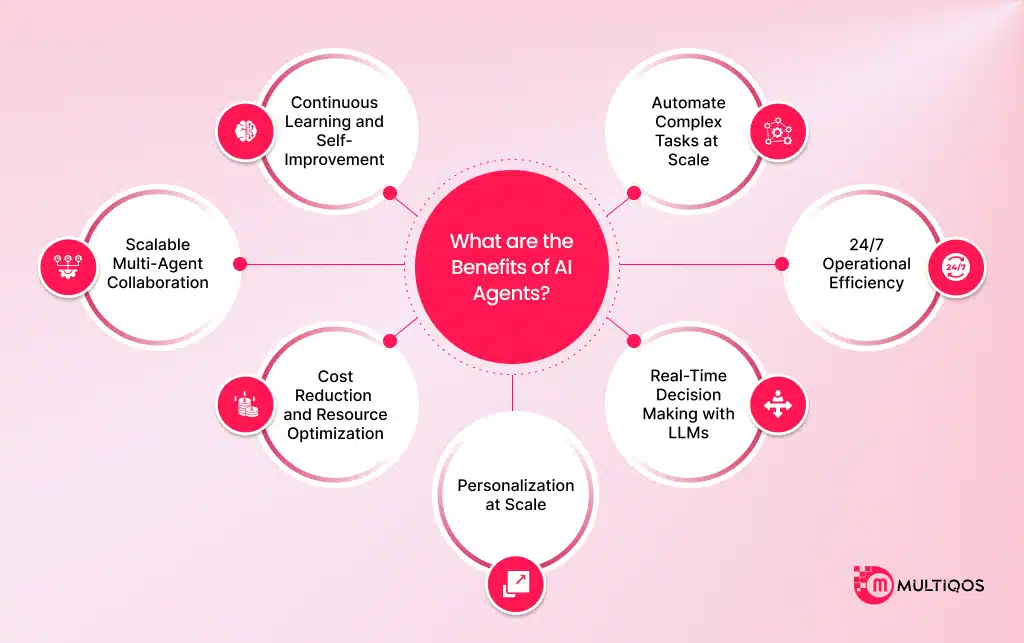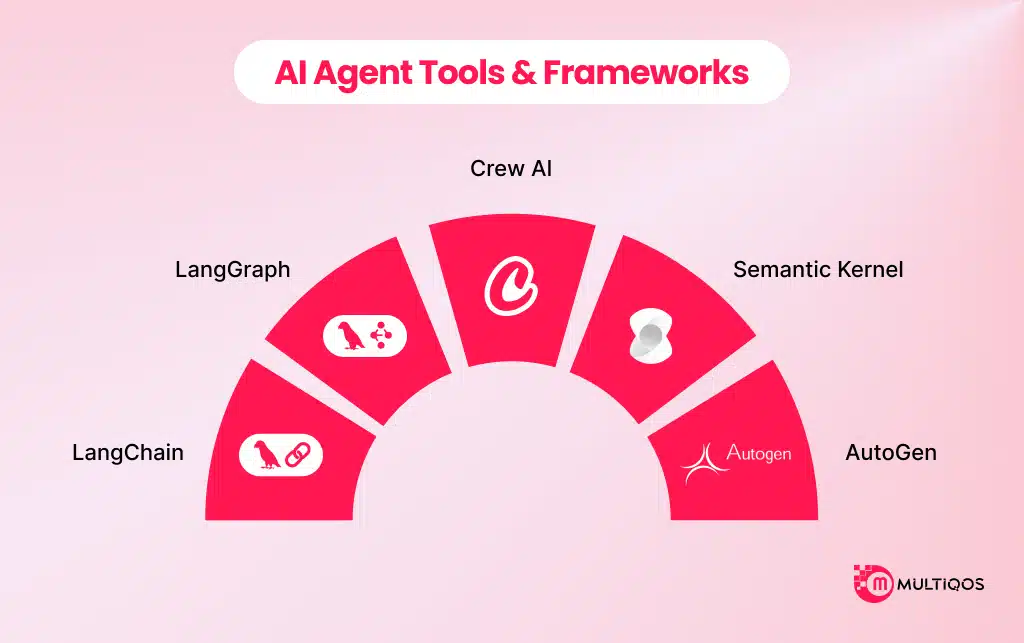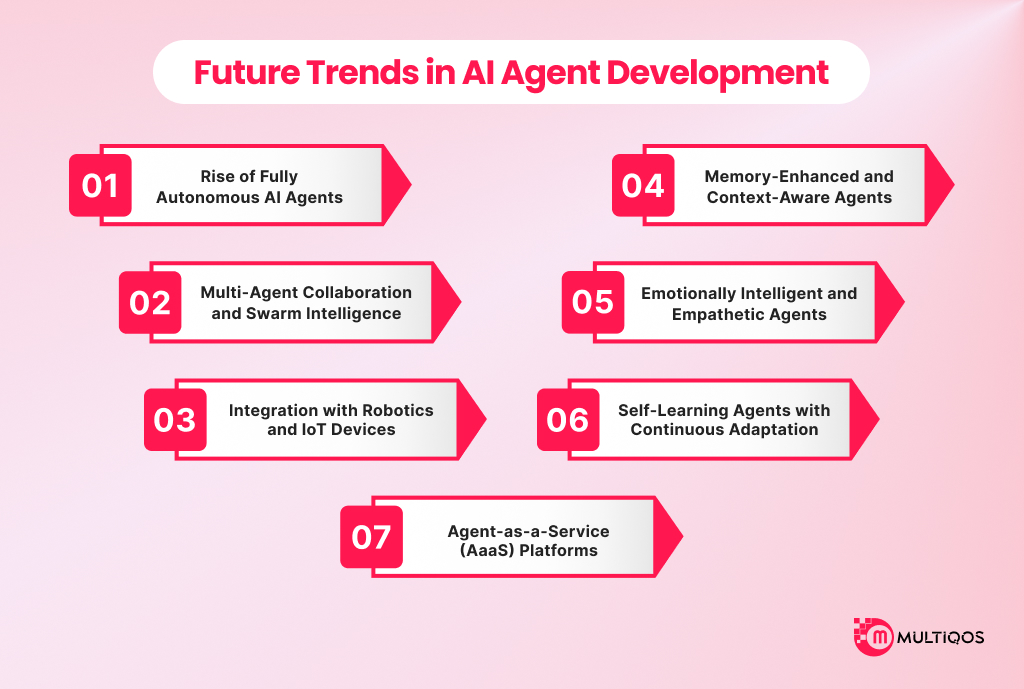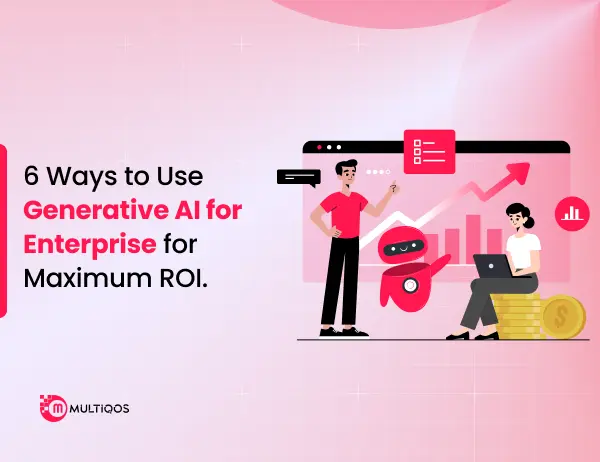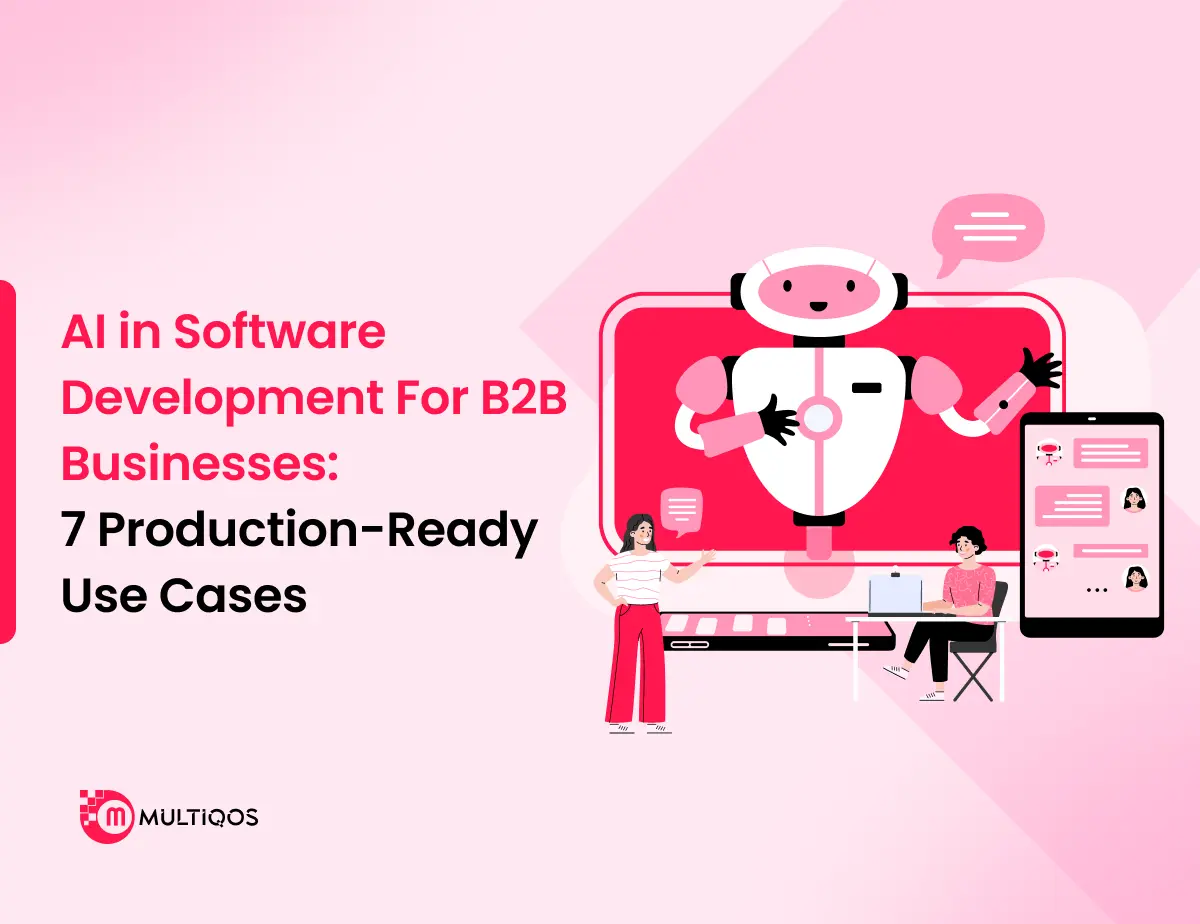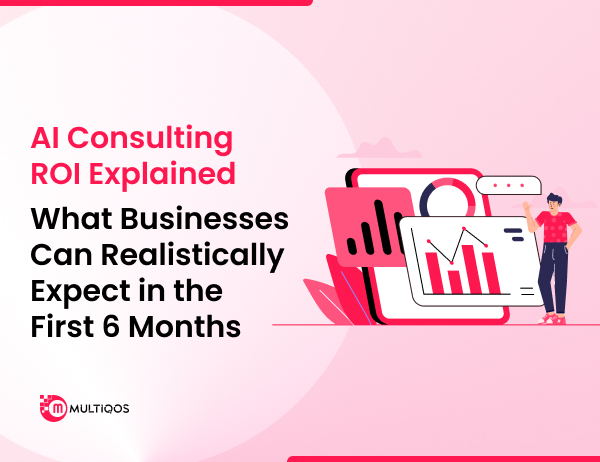Everything You Need to Know About AI Agent Development
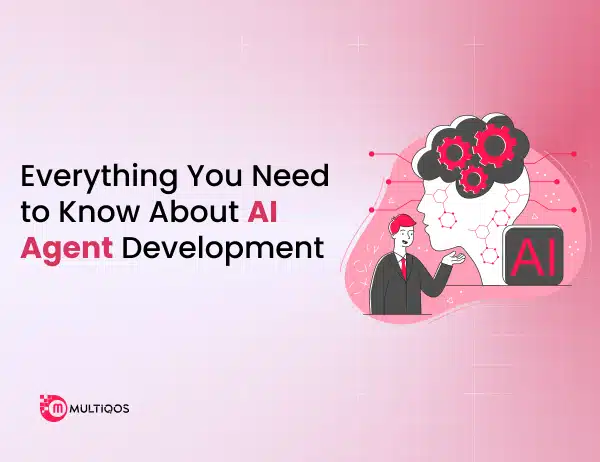
Summary:
This blog breaks down Everything You Need to Know About AI Agent Development—from what AI agents are to how they’re transforming industries with automation and intelligence. It addresses fundamental advantages, prominent tools and frameworks, tips for incremental skill advancement, and prognostications such as autonomous agents and multi-agent systems.
Practical guidance on selecting the appropriate development partner is also provided. This guide walks the reader through the planning stages of building an AI agent, or simply exploring the expanding frontier, in an organized, straightforward format.
Introduction
AI agent development stands at the core of digital innovation in an era when automation and intelligence blend together. From sophisticated aids that book your meetings to self-governing agents that improve supply chains, the surge of AI agents is revolutionizing business operations and human relationships with technology.
According to Gartner, by 2026, over 60% of customer service interactions will be handled by AI agents—up from just 20% in 2022. Whether you’re a tech-savvy entrepreneur, a business leader, or just curious about the future, this guide breaks down everything you need to know, without the jargon.
The U.S. market for AI solutions is projected to surpass $120 billion by 2025, and AI agents are a major driver of that growth. From boosting operational efficiency to delivering hyper-personalized customer experiences, these digital agents are revolutionizing entire industries.
In this blog, we’ll explore how AI agent development works, the tools and technologies behind it, and why artificial intelligence agents are quickly becoming must-haves in every modern organization.
What is an AI Agent?
An AI agent is a digital system powered by artificial intelligence that can perceive its environment, make decisions, and perform tasks autonomously. These smart agents use a mix of technologies like machine learning, deep learning, and natural language processing to interact with users and data in real time.
According to recent research, over 80% of U.S. companies are either using or exploring AI agents to enhance operations and customer engagement. From virtual assistants like Siri and Alexa to self-driving vehicles and AI chatbots, these agents are reshaping how we work, live, and connect.
In the U.S. alone, the AI agent market is projected to grow by over $9 billion by 2027, driven by the demand for automation and intelligent decision-making. Businesses across industries—from healthcare to finance—are using AI agents to reduce operational costs, boost productivity, and deliver personalized experiences.
As AI agent development continues to advance, these systems are becoming more adaptable and capable of solving complex problems. If you’re looking to stay ahead in the age of digital transformation, understanding what is an AI agent and how it can elevate your business is more relevant than ever.
What are the Benefits of AI Agents?
Within the information era, the potential optimizations provided by AI agents appear to be limitless, going beyond simple automation. Indeed, if an organization is looking to create an AI agent for internal processes or deploy autonomous agents for customer interaction, they stand to benefit greatly. From results-focused businesses to those forward-oriented. Current trends show that enterprises are seeking the services of leading AI agent development firms to ilntegrate intelligent solutions that evolve and adapt in real time.
1. Automate Complex Tasks at Scale
AI agents excel at handling repetitive, logic-driven tasks that once required human oversight. From customer support workflows to logistics management, intelligent agents can manage these processes autonomously, reducing manual effort and minimizing errors. With the help of AI agent tools and best AI agent frameworks, businesses can now automate at a scale that was unthinkable just a few years ago.
2. 24/7 Operational Efficiency
Unlike human employees, AI agents don’t need sleep. Once deployed, they operate around the clock, boosting productivity and maintaining consistency across time zones. This makes them a game-changer for industries that rely on global operations and real-time responsiveness.
3. Real-Time Decision Making with LLMs
AI agents equipped with Large Language Models (LLMs) can analyze vast datasets and make intelligent decisions in real time. This means dynamic adaptation to user behavior, improved forecasting, and faster resolutions. Many AI development services now integrate LLMs to empower smarter automation and enhanced decision-making.
4. Personalization at Scale
The e-commerce sector has greatly benefited from the integration of AI, with automated chat systems offering intelligent interactions with hyper-personalized recommendations. The right AI agent development solutions enable real-time customer data analysis, offering targeted content, promotions, and assistance tailored to individual preferences.
5. Cost Reduction and Resource Optimization
Perhaps the singular outstanding benefit associated with AI agents is the cost-saving advantages toward the productivity of a firm. Automating manual workflows allows for a reduction in costs and also allows the skills of personnel to be utilized in more beneficial areas. Organizations that collaborate with proficient AI agent programmers usually observe an ROI at minimum a few months post-implementation.
6. Scalable Multi-Agent Collaboration
In systems with higher levels of complexity, multi-agent systems permit the interaction of various AI agents to achieve a common objective. This type of coalition intelligence is highly beneficial for domains such as logistics, robotics, and even financial trading, where per-microsecond synchronizations count.
7. Continuous Learning and Self-Improvement
AI agents do not remain stagnant– they advance. Due to machine learning and feedback loops, they improve their performance based on every interaction over time. When you hire AI agent developers who focus on adaptive systems, you are putting money into solutions that bifurcate in intelligence the longer they operate.
Top AI Agent Tools and Frameworks
To successfully build an AI agent, you need the right tools and AI agent frameworks overview that support flexibility, scalability, and intelligent behavior. Below are some of the best AI agent frameworks and platforms that power today’s most advanced autonomous agents and multi-agent systems.
LangChain
LangChain is a popular choice in AI agent development, enabling agents to interact with data sources, tools, and APIs while managing context through chains of prompts.
LangGraph
LangGraph extends LangChain’s capabilities, making it ideal for building multi-agent systems where agents communicate and collaborate effectively.
Crew AI
Crew AI focuses on coordination, allowing multiple agents to function as a team. It’s widely used in complex workflows and collaborative AI Agent examples.
Semantic Kernel
Developed by Microsoft, Semantic Kernel lets developers integrate natural language understanding into AI agents. It’s a go-to for teams looking for enterprise-grade AI agent tools.
AutoGen
AutoGen supports customizable and reusable agent architectures. It’s excellent for those aiming to build an AI agent that can adapt and scale across various use cases of AI Agents.
Want to know more about the latest AI Agent tools and frameworks?
Check out our recent article about AI Agent frameworks and know everything in detail.
How to Build an AI Agent?
AI agent development starts with a clear vision and the right tech stack. Here’s a step-by-step overview to help you build an AI agent that delivers value from day one.
Choose a Use Case and Define Goals
The first step in AI agent development is identifying a specific problem your agent will solve—whether it’s customer support, data analysis, or automation.
Select Your Framework and Tools
Choose from the best AI agent frameworks like LangChain or AutoGen. The right tools are critical to efficient AI agent development.
Set Up Data Inputs and APIs
Effective AI agent development requires seamless access to data. Integrate APIs and define input channels your agent will use.
Program Agent Logic or Use LLM Prompts
Use custom logic or LLM-based prompting strategies as part of your AI agent development process to enable smart decision-making.
Add Memory and Feedback Mechanisms
For dynamic behavior, AI agent development should include memory systems and feedback loops that support learning and adaptation.
Test, Fine-Tune, and Deploy
Thorough testing and iteration are key. Finalize your AI agent development by deploying it in real-world conditions and monitoring performance.
After understanding how to build an AI Agent and how AI Agent works, are you concerned about the cost of AI Agent development? We’re just a click away!
Future Trends in AI Agent Development
As technology evolves, AI agent development is entering a new era—one defined by intelligence, autonomy, and deeper integration into our daily lives. Here are the key trends shaping the future:
Rise of Fully Autonomous AI Agents
The next phase of AI agent development is focused on creating agents that can make complex decisions and act entirely on their own with minimal human input.
Multi-Agent Collaboration and Swarm Intelligence
AI agent development is moving toward systems where multiple agents work together, mimicking swarm intelligence to solve tasks more efficiently and at scale.
Integration with Robotics and IoT Devices
With the growth of smart devices, AI agent development is expanding into the physical world, enabling seamless integration with robotics and IoT environments.
Memory-Enhanced and Context-Aware Agents
Advanced AI agent development includes long-term memory and contextual awareness, allowing agents to personalize interactions and adapt over time.
Emotionally Intelligent and Empathetic Agents
Human-centric AI agent development is prioritizing emotional intelligence, building agents that understand tone, sentiment, and user intent on a deeper level.
Self-Learning Agents with Continuous Adaptation
Modern AI agent development focuses on self-learning models that continuously improve from feedback, ensuring agents evolve with user needs.
Agent-as-a-Service (AaaS) Platforms
The rise of AaaS is transforming AI agent development into a plug-and-play service model, allowing faster deployment and integration across industries.
How to Hire the Right AI Agent Development Partner?
Finding the right team for AI agent development can make or break your project. Whether you’re building from scratch or scaling existing agents, it’s essential to choose a partner who understands your industry, tech needs, and long-term goals. Here’s how:
- Look for hands-on experience with AI agent tools and frameworks like LangChain, AutoGen, or Semantic Kernel
- Review case studies or AI agent examples relevant to your use case
- Ask about their process for prototyping, testing, and deployment
- Ensure they offer post-launch support and ongoing optimization
- Check client testimonials and reviews for trustworthiness
- Prioritize partners who stay current with trends in autonomous and multi-agent systems
For a deeper checklist, wait for the upcoming blog: Tips for Hiring a Trusted AI/ML Development Company, where we’ll discuss in detail how to choose the right partner for business innovation and success.
Conclusion
AI agent development is reshaping the future of AI agents, automation, decision-making, and personalized experiences across industries. From selecting the right frameworks to deploying intelligent, adaptive systems, building effective AI agents requires both strategic vision and technical expertise. As businesses continue to embrace digital transformation, now is the time to explore how AI agents can drive growth, efficiency, and innovation in your organization.
Frequently Asked Questions
AI agent development process refers to designing, building, and deploying intelligent agents that can perceive, reason, and act autonomously. It involves using AI frameworks, tools, and machine learning techniques to create agents capable of solving tasks, making decisions, and learning from interactions.
Popular tools for AI agent development include LangChain, LangGraph, Crew AI, AutoGen, and Semantic Kernel. These platforms help developers build, manage, and scale intelligent agents efficiently.
Look for an AI agent development company with a proven track record, experience in your industry, expertise in modern frameworks, and solid post-launch support. They should also align with your goals and offer scalable, future-ready solutions.
An ideal AI agent developer should have a strong background in machine learning, Python, prompt engineering (for LLMs), API integration, and experience with frameworks used in AI agent development. Knowledge of multi-agent systems and autonomous behavior is a plus.
Get In Touch

